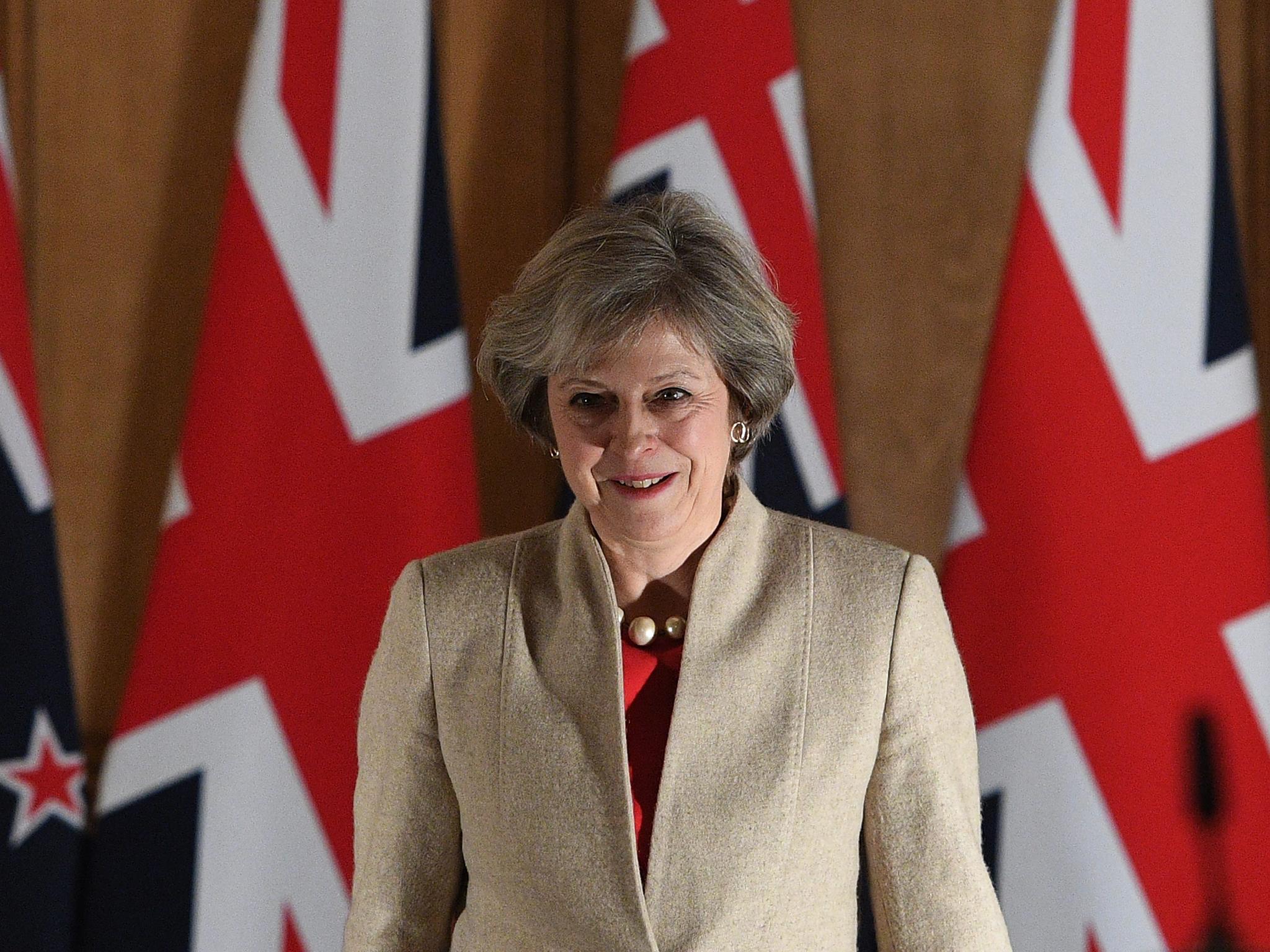May's Wager: An Early Election Buys More Time to Hash out Brexit

EghtesadOnline: Nine months after becoming prime minister, Theresa May is learning how to gamble.
Long branded a risk-averse micromanager, May is betting that a crushing election victory will win her the freedom to negotiate the kind of Brexit she wants and avoid the European curse that has destroyed many former Conservative leaders.
If all goes to her plan, the snap election in seven weeks will tighten her grip on power with a broader majority. Instead of being a prime minister who took office by default, she would have her own electoral mandate that will will allow her to push a Brexit deal through parliament, Bloomberg reported.
Oliver Harvey and George Saravelos, strategists at Deutsche Bank AG, called May’s move a “game-changer” that will dilute the influence of Tory hardliners. Gone is the danger of a 2020 election that “imposed a hard deadline on delivering Brexit on an unrealistic timeline” and also made “the prime minister reliant on a small Euro-sceptic majority.”
Sterling Soars
Traders bought that analysis by sending the pound to a six-month high.
As things stood, May risked reaching the end of the specified negotiating period in March 2019, a year before an election was due. That would have left her no wriggle room if she and her EU counterparts wanted to extend discussions or make transitional arrangements, something financial services in particular want to see as they look to relocate.
So she went for what she called a “one-off chance.” Since triggering Article 50 of the Lisbon Treaty on March 29, May had been mulling the arguments in favor of a early vote before coming to a final decision -- during a walking holiday with her husband -- that it would be too much of a headache to have an election looming as negotiations conclude.
In an interview with The Sun May put it like this: “If we’re negotiating at a point that is quite close to a general election, I think the Europeans might have seen that as a time of weakness when they could push us.”
If May gains enough seats, she won’t have to be so concerned about those in her party who make the case that failure to find a deal -- “the cliff edge’ scenario -- is not so bad. Those tensions are palpable within the government, with Chancellor of the Exchequer Philip Hammond telling Bloomberg this month that there are Tories who “do not want a deal.”
The Eurasia Group now has reduced the odds on talks collapsing to 20 percent from 30 percent.
A victory would also give May a mandate that goes beyond Brussels. Last month, she was forced to back down over a tax rise in the budget, with Tories rebelling because it went against a commitment her predecessor, David Cameron, had made in his 2015 election manifesto. May now has the chance to write her own election platform.
She can get away with this because of the weakness of the opposition. A flash ICM pollafter her announcement found 46 percent of people saying they’d vote Tory, close to twice the number backing Labour. And this is before the Conservative Party has even begun really to attack Labour’s leader, Jeremy Corbyn, whom voters already see as much less competent to be prime minister.
“It’s smart politics: massive opinion poll lead plus small majority equals early election,” said Tim Bale, author of “The Conservatives From Thatcher to Cameron.” “I don’t think it’s going to get any better than this for the Conservatives, if you look at some of the difficult things that are coming down the line: Not just Brexit, but the economy. These were going to have political effect at some stage.”
May’s office said Tuesday that she doesn’t want to take part in televised debates, a feature of the past two elections. What voters will get instead is regular reminders from the Tories of Corbyn’s past, which includes meeting groups associated with Irish and Islamist terrorism.
But there is a risk between now and June 8 that something goes wrong for May. If the threat isn’t from Labour, could it be from elsewhere? Maybe Scotland.
May had argued that calls from the Scottish National Party for another referendum on independence would be an unnecessary distraction when the country was focused on Brexit. That argument is now harder to sustain and another election in which the SNP did well would put her in a political bind.
May is also asking voters to back her over Brexit, but 48 percent of the country voted to stay. The anti-Brexit Liberal Democrats, who came close to being wiped out in the 2015 election, sniff an opportunity. They will target seats around London that voted “Remain” in the EU referendum and are represented by “Leave”-backing Tories.
“Surely the one thing we should have learned over the last two years is that voters don’t always do what everyone so confidently expects,” said Philip Cowley, professor of politics at Queen Mary, University of London. “Looks like lots of people haven’t learned that, though.”


